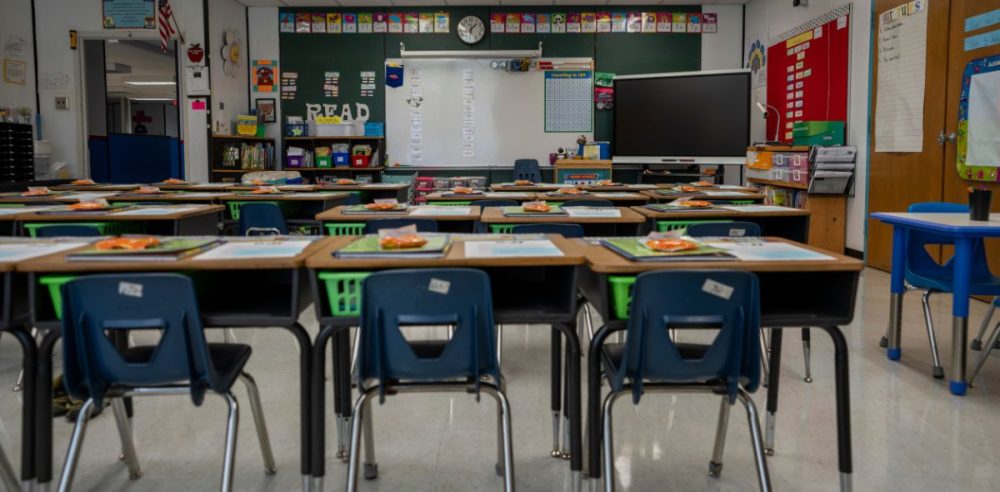Several school districts are urging voters to approve a property tax rate increase.
Northwest ISD said it faced a $15.8 million budget deficit and does not expect increased state funding. However, its enrollment has increased, and the ISD is asking its residents to cover the difference, according to KERA News.
“The way I always think of it, we have a $16 million deficit. If this is approved at the polls, we get back to pretty close to $0,” Northwest ISD Superintendent Mark Foust said, reported KERA News.
Currently, Northwest ISD is one of two ISDs that is placing a property tax rate increase on residents’ ballots in the upcoming November 5 election, reported KERA News.
The other ISD, Grapevine Colleyville ISD, is also considering raising the rate, reported KERA News.
“If this is not successful, we are going to get to the point where it is going to impact the classroom,” GCISD Superintendent Schnautz said during a September 18 presentation, reported KERA.
“We’re going to start to see programs, staffing ratios, those things will be affected. It’s important we know that.”
KERA News reported that officials in Northwest ISD did not want to force residents to ask for a tax increase but believed that the circumstances required it.
As previously reported by The Dallas Express, some residents in Northwest ISD have accused the ISD of using scare tactics to push for the tax increase.
“Imagine living in an ISD with close to $2 billion dollars in bond debt and then being asked to support a VATRE to further increase your taxes. NISD can’t figure out how to tighten their belts and find $15.8 million dollars to fund student programs and teacher salaries. NISD regularly uses taxpayer money and ISD staff to create advocacy campaigns to increase taxes,” Ruth Ray posted on Facebook along with a photo of the Northwest ISD VATRE statement.
James Quintero from the Texas Public Policy Foundation told The Dallas Express that Northwest ISD already spends plenty of taxpayer money.
“In 2023, Northwest ISD’s All Funds expenditures approached an eye-popping $28,000 per student. For anyone to suggest that the district requires even more tax dollars is untethered from reality,” Quintero said.
“It would be refreshing if, instead of always rushing to raise taxes, local government officials first got their own fiscal houses in order by way of zero-based budgeting, third-party efficiency audits, and getting back to basics,” Quintero added. “It’s hard to believe that anyone is asking for a major tax increase right now when so many are struggling to afford food, gas, and rent.”


